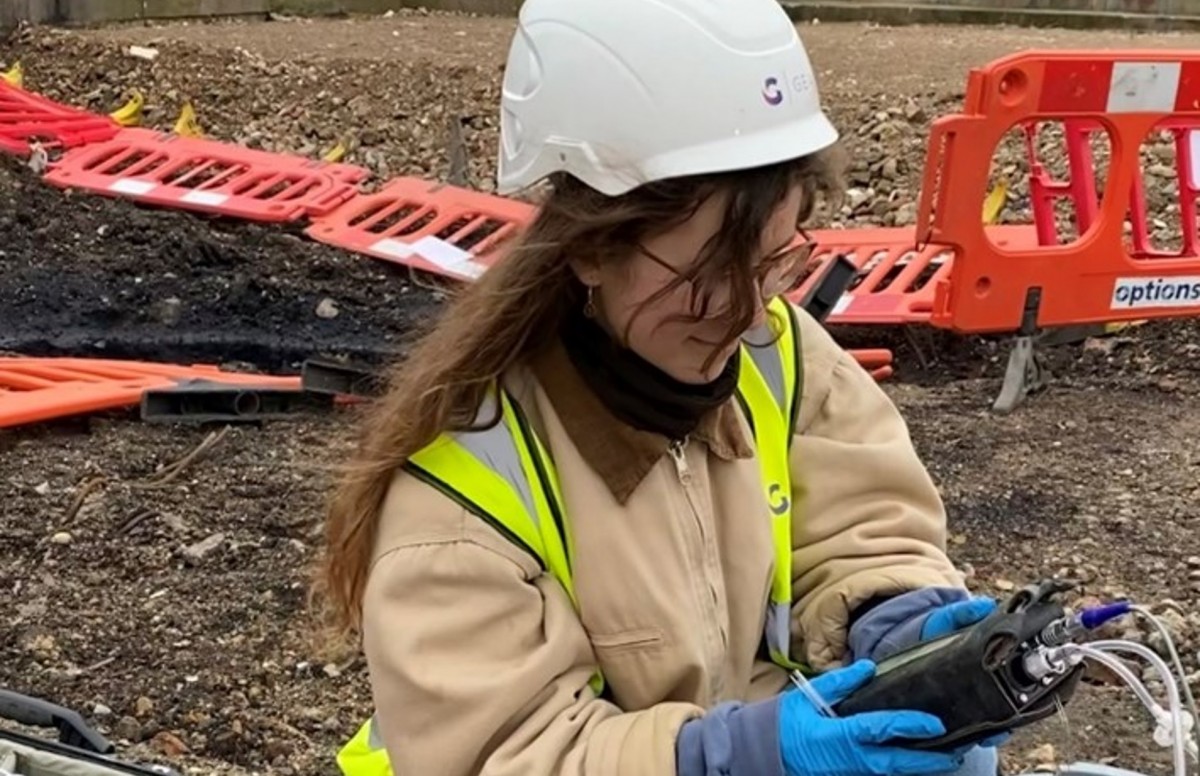Not known Factual Statements About Geotheta
Not known Factual Statements About Geotheta
Blog Article
The Only Guide for Geotheta
Table of ContentsWhat Does Geotheta Do?Geotheta for DummiesThings about GeothetaThe Geotheta IdeasGeotheta - Truths

They perform website examinations, gather samples, perform lab examinations, and examine information to evaluate the viability of the ground for building and construction tasks - Geotechnical Engineers. Based on their findings, geotechnical engineers supply recommendations for structure design, slope stability, maintaining frameworks, and reduction of geotechnical hazards. They collaborate with various other experts, such as architects, architectural engineers, and construction teams, to ensure that geotechnical considerations are incorporated right into the general job design and application
By analyzing the habits and buildings of dirt and rock, they can recognize prospective geotechnical dangers such as landslides, dirt settlement, or incline instability. Their know-how helps prevent failings or mishaps that might jeopardize lives and property. Right here are some thorough duties and responsibilities of a geotechnical designer: Website Examination: Geotechnical engineers conduct website investigations to collect information on subsurface conditions.
They interpret the data to understand the properties and behavior of the dirt and rock, including their stamina, permeability, compaction characteristics, and groundwater conditions. Geotechnical Evaluation and Layout: Geotechnical designers assess the information accumulated during website investigations to analyze the security and viability of the website for construction tasks. They carry out geotechnical computations and modeling to review elements such as birthing ability, settlement, slope stability, side earth pressures, and groundwater circulation.
Get This Report on Geotheta
Structure Layout: Geotechnical designers play an important function in making foundations that can securely sustain the desired framework. They examine the soil problems and load demands to identify the proper foundation kind, such as shallow structures (e.g., grounds), deep foundations (e.g (https://www.find-us-here.com/businesses/Geotheta-Alexandria-Alabama-USA/34113488/)., stacks), or specialized techniques like soil enhancement. They think about factors such as settlement limits, birthing ability, and soil-structure interaction to establish optimum foundation styles
They examine construction plans, screen website activities, and perform field inspections to validate that the design suggestions are followed. If unpredicted geotechnical issues arise, they examine the situation and offer referrals for remediation or modifications to the style. Danger Evaluation and Mitigation: Geotechnical designers examine geotechnical dangers and dangers connected with the job website, such as landslides, liquefaction, or dirt erosion.

Partnership and Interaction: Geotechnical designers function very closely with other professionals associated with a task, such as designers, structural engineers, and building teams. Effective communication and cooperation are vital to integrate geotechnical factors to consider right into the overall job design and building process. Geotechnical designers provide technical knowledge, answer inquiries, and make certain that geotechnical needs are fulfilled.
Geotheta - The Facts
Here are some kinds of geotechnical engineers: Structure Designer: Structure engineers focus on designing and assessing foundations for structures. They examine the soil conditions, lots needs, and website features to determine one of the most proper foundation type and design, such as superficial structures, deep foundations, or specialized strategies like pile foundations.
They examine the aspects influencing slope stability, such as soil residential properties, groundwater problems, and slope geometry, and create approaches to avoid incline failings and minimize threats. Quake Designer: Earthquake designers specialize in assessing and making structures to look at more info endure seismic forces. They assess the seismic danger of a website, review soil liquefaction potential, and develop seismic layout criteria to make certain the safety and durability of frameworks throughout quakes.
They execute area screening, gather examples, and examine the accumulated data to identify the dirt residential or commercial properties, geologic formations, and groundwater problems at a site. Geotechnical Instrumentation Designer: Geotechnical instrumentation designers concentrate on surveillance and measuring the habits of dirt, rock, and structures. They set up and preserve instrumentation systems that keep an eye on variables such as dirt settlement, groundwater levels, slope activities, and architectural variations to evaluate efficiency and provide early cautions of prospective issues.
Geotheta Can Be Fun For Anyone
They carry out examinations such as triaxial examinations, loan consolidation tests, straight shear tests, and permeability examinations to gather information for geotechnical analysis and layout. Geosynthetics Engineer: Geosynthetics designers specialize in the style and application of geosynthetic products, such as geotextiles, geogrids, and geomembranes. They use these products to enhance dirt security, strengthen inclines, provide drain remedies, and control erosion.
They have a tendency to be investigative individuals, which suggests they're intellectual, introspective, and curious. They wonder, methodical, rational, analytical, and logical. A few of them are likewise social, implying they're kind, charitable, participating, client, caring, helpful, compassionate, sensible, and pleasant. Does this noise like you? Take our cost-free career test to discover if geotechnical designer is one of your leading career suits.
In the workplace environment, geotechnical designers use specialized software application devices to execute estimations, develop styles, and evaluate data. They prepare reports, evaluation project specifications, interact with clients and employee, and coordinate task activities. The office setup supplies a conducive atmosphere for research study, evaluation, and partnership with other professionals entailed in the project.
Some Known Incorrect Statements About Geotheta
They regularly see project sites to conduct website examinations, examine geotechnical conditions, and gather data for analysis. These check outs entail taking a trip to various areas, in some cases in remote or tough terrains. Geotechnical designers may do soil tasting, conduct examinations, and screen building tasks to make sure that the geotechnical aspects of the project are being applied appropriately.
Geotechnical engineers likewise operate in specialized geotechnical labs. In these centers, they perform experiments, execute tests on soil and rock examples, and assess the design buildings of the products. Geotechnical lab engineers work extensively in these atmospheres, dealing with screening devices, running instruments, and taping data. They work together with various other lab personnel to make sure precise and dependable testing results.
Report this page